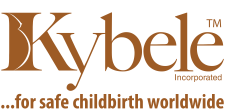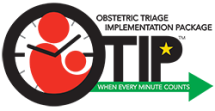Article Written by Helen Akinc
Change does not come easily to most people. It takes courage to allow one’s life experiences to change the direction of one’s journey. Most people who are involved with Kybele in one way or another have that courage and have allowed the events of their lives to alter the direction and the decisions they make. Fiona Bryce is no exception. When I first contacted Fiona, she was not at home in the UK, but away on holiday. Even though she was on vacation, she graciously responded and asked if she could get back to me in a few weeks, which she did. Her story and her insights are insightful and inspiring. Read on!
Dr. Bryce first became involved with Kybele approximately three years ago. As she says, it is somewhat convoluted, but interesting. She was already travelling to Ghana on a regular basis through her participation in a church project involved with building a home for destitute children on the outskirts of Accra. Because of that project, Fiona and two midwives with whom she works, Liz Floyd and Kerry Morgan, visited and got to know staff in a maternity unit in Wjeija. The director of that unit asked them to develop a course in neonatal resuscitation, which they did. In so doing, it helped Fiona and her colleagues to more clearly understand Ghanaian maternity services. That led Dr. Bryce to seek ways to become more involved in a hands-on way.
Just as Fiona was beginning to become frustrated at how to get more involved, she happened to be invited to a meeting hosted by the Ghana Health Service, focusing on a University of Utrecht project. At the meeting she met and was very impressed by Dr. Emmanuel Srofenyoh. She asked if she could spend a day with him at Ridge Hospital. It was during that visit that she became aware of Kybele and was then able to get in touch with Medge. Following that, Fiona and her colleague Liz Floyd were able to join the Kybele team on the October 2011 trip. And some five visits later, she reflected on some of the contributions:
“Our role also bridges a gap as the Ghanaian maternity services are based on the British model of delivering care. In the USA midwives are a rarity and care to pregnant women is given by Obstetricians and labour nurses. This occurs for all women whether high risk obstetric patients or low risk women. In Ghana and the UK low risk women i.e., those who are simply pregnant with no other medical problems and no obstetric problems are looked after and delivered entirely by midwives, if problems develop then there is easy referral to and involvement of obstetricians. Midwives are also able to train to take on more advanced roles in critical care, community care, public health involvement, giving a whole woman approach. So, we have a lot of common areas and there are lots of opportunities for us to work alongside the Ghanaian midwives in helping them develop these roles. A big challenge is in the area of leadership where traditionally it has been hierarchical rather than on skills and knowledge.
Our present focus is trying to equip midwives with the skills of triage (identifying high risk women from low risk). This has been identified as a major need. The numbers of deliveries at Ridge hospital over the last 10 years has increased from 2000 / year to almost 12,000. The facilities and staffing numbers are largely unchanged. This has presented enormous difficulties to the staff and challenges all we are doing to reduce maternal mortality and morbidity. An opportunity has arisen to use the labour ward facilities at a polyclinic situated on the other side of the road to Ridge hospital, this gives the opportunity to deliver low risk patients there and decongest the Ridge labour ward and develop the facilities at Ridge to care for high risk women. Through our time spent working with the midwives we have insight to the problems and have developed a 2 day triage training course. We delivered this course 5 times to approximately 30 midwives during our last visit and have built in an ongoing educational assessment.
We have also been involved in looking at quality improvement but this is in an embryo stage but has huge potential opportunities to help deliver safer care to mum and baby.”
When asked about how the experience in Ghana has impacted and changed her both as a doctor and person, she answered:
My work in Ghana has changed me forever! The work with the children’s project opened my eyes to poverty I had never experienced before, but also seeing the faith and hope that people that face such overwhelming difficulties taught me how fortunate I am in the life I live. I do not have to worry everyday how to feed my family, if I can pay for care if they are sick, my children have had a brilliant education provided by the state and have the world at their feet. But I have also seen how children in Ghana are cared for in families and extended families, how simple things make them happy and they are not dependent on the materialistic baggage that we in the west now build our lives around. They live day to day grateful that they are alive the next morning. Respect for others, families, elders, communities is so much more. I live in a society that has a culture of blame not respect and not grateful for the privileges we are given everyday.
As a doctor, well, I know it has made me appreciate how grateful I am for the wonderful health care we are able to access in the UK . I complain about the NHS and all its inefficiencies but I realise that I have a responsibility to make that better and to ensure that I use the resources we have as effectively and responsibly as possible. I also don’t want to waste the skills I have acquired and hence my wish to find a way they can be most effectively used in Ghana. I have also learnt from being in Ghana about going back to my basic medical skills, (as) we are not able to access all the technology we have in the west so it involves thinking in new ways of doing things differently but safely.
Thank you, Fiona, for all you do for mums and children around the world.


